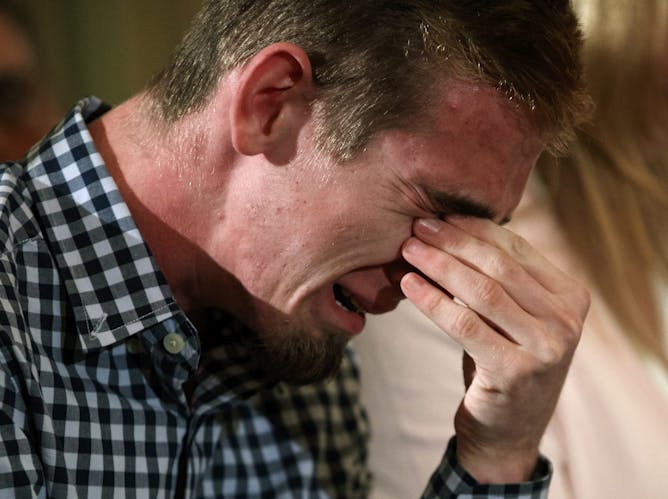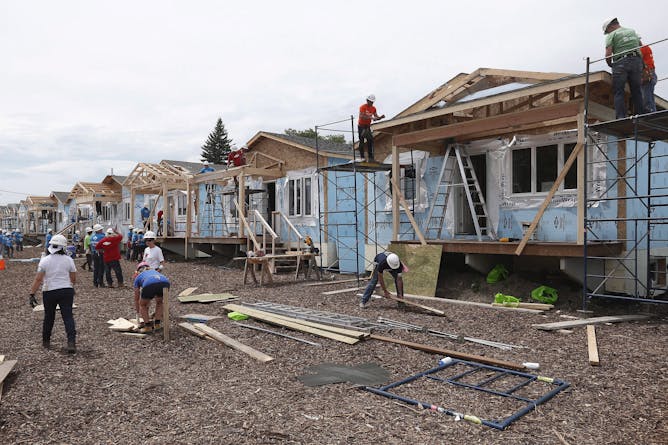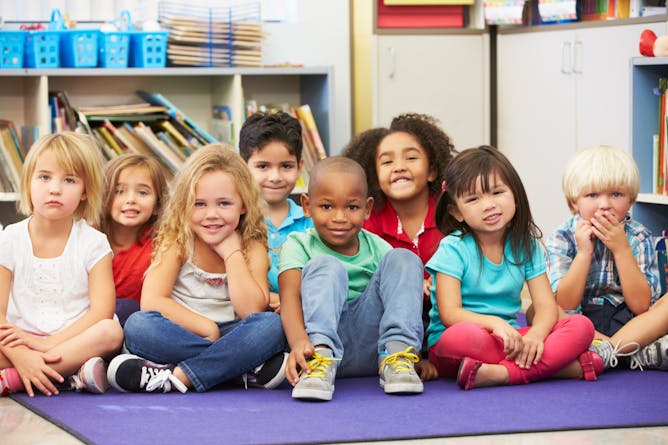|
Today in The Conversation Canada, we tip our hats to McMaster University. Three of our four compelling stories today were produced by McMaster academics.
Henry Giroux is back to dissect the politics and societal impulses of his U.S. homeland, this time focusing on the country’s horrifying gun violence in the wake of the latest mass school shooting. Prof. Giroux argues the cancer of gun violence south of the border, a scourge that often claims children as its victims, can never be eliminated until its historical, social and economic roots are understood and confronted.
McMaster’s dean of engineering, Ishwar K. Puri, writes that employers now want to hire university grads who require no on-the-job training. That’s why what’s known as “experiential learning” is so critical for university students, and McMaster students are heeding his call.
Netina Tan and Marvin Mercado issue their own call today to the federal government: Canada must “walk the talk” if it’s going to present itself as a human rights champion, not sell arms to dictatorships run by the likes of Philippines President Rodrigo Duterte.
And finally, Nikki Martyn and Elene Mernenda of the University of Guelph-Humber offer practical strategies for parents and teachers to create an inclusive environment and reduce bullying as Pink Shirt Day approaches this week.
|

Samuel Zeif, an 18-year-old senior at Marjory Stoneman Douglas High School in Parkland, Fla., cries after speaking during a listening session with President Donald Trump in Washington on Feb. 21, 2018.
(AP Photo/Carolyn Kaster)
Henry Giroux, McMaster University
What are we to make of a society in which young children have a greater sense of moral courage and social responsibility than the zombie adults who make the laws that fail to protect them?
|

Volunteers work on a Habitat for Humanity site in Winnipeg in July 2017. Building homes for the disadvantaged is the type of ‘learning through service’ that will stand university grads in better stead with employers.
THE CANADIAN PRESS/John Woods
Ishwar K. Puri, McMaster University
Employers now expect to hire people out of universities who don't require any training. That's why so-called experiential learning is becoming so critical for university students.
|

Canadian Prime Minister Justin Trudeau shakes hands with Philippine President Rodrigo Duterte and Honeylet Avancena as he arrives at the 50th Anniversary celebration of the Association of Southeast Asian Nations in Manila in November 2017.
THE CANADIAN PRESS/Adrian Wyld
Netina Tan, McMaster University; Marvin Mercado, McMaster University
The Canadian deal to sell helicopters to the Philippines has finally been killed. What took so long, and why was it the Philippines, not Canada, that ultimately scrubbed the deal?
|

The development of an inclusive environment both at school and at home can help children understand and accept differences and reduce bullying.
(Shutterstock)
Nikki Martyn, University of Guelph-Humber; Elena Merenda, University of Guelph-Humber
As Pink Shirt Day approaches, early childhood educators offer practical strategies for parents and teachers to create an inclusive environment and reduce bullying.
|
Politics
|
-
Robert Spitzer, State University of New York College at Cortland
The group, founded in 1871, didn’t try to smother virtually all gun control efforts until the mid-1970s.
|
|
Culture + Society
|
-
Brian Ward, Northumbria University, Newcastle
It's 200 years since the legendary African American abolitionist and ex-slave Frederick Douglass crossed the Atlantic and found freedom in northeast England.
|
|
Environment + Energy
|
-
Joachim Schleich, Grenoble École de Management (GEM); Anne-Lorène Vernay, Grenoble École de Management (GEM); Nikolas Wölfing, Zentrum für Europäische Wirtschaftsforschung (ZEW); Wolfgang Habla, Zentrum für Europäische Wirtschaftsforschung (ZEW)
The overall analysis of the results of the new Energy Market Barometer confirms that the road to a change in the dominant mobility model is still long.
|
|